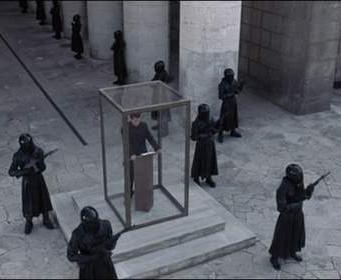NEW YORK — The wail that came up from the crowd was as if they heard that Sean Bell had
died again.
No!
they shouted, while dozens of people, wearing Bell’s face on hats, T-shirts and
buttons, burst into sobs.
The scene unfolded outside the courthouse Friday as three police officers were cleared of all
charges in the 2006 shooting of Bell, who died in a hail of 50 bullets on his wedding day.
Hundreds of friends of Bell and others wanted vindication for what they called a racially motivated
shooting, and they reacted with tears and explosive anger to the officers’ acquittal.
Many people in the predominantly black crowd began reciting other cases where black New Yorkers
were shot by police, and the officers, they said, got away with it.
This was a disgrace, what happened today,
shouted Calvin Hutton, a Harlem resident.
We prayed for a different result, but we got the same old bull——.
Inside the packed Queens courtroom, gasps could be heard when Judge Arthur Cooperman
acquitted the officers. Bell’s mother cried; her husband put his arm around her and shook his
head. Bell’s fiancee, Nicole Paultre Bell, left the courtroom immediately. . . . Scores of police
officers formed lines in the middle of traffic to block the crowd from charging the courthouse.
. . . Patrick Lynch, president of the Patrolmen’s Benevolent Association, said the judge sent a message to officers that when you’re in front of the bench, that you will get fairness.
. . . William Hardgraves, 48, an electrician from Harlem, brought his 12-year-old son and
23-year-old daughter to hear the verdict. . . . I hoped it would be different this time. They
shot him 50 times,
Hardgraves said. But of course, it wasn’t.
— Assocated Press 2008-04-25: Sean Bell Supporters Angry About Detectives’ Acquittal in Wedding Day Killing
